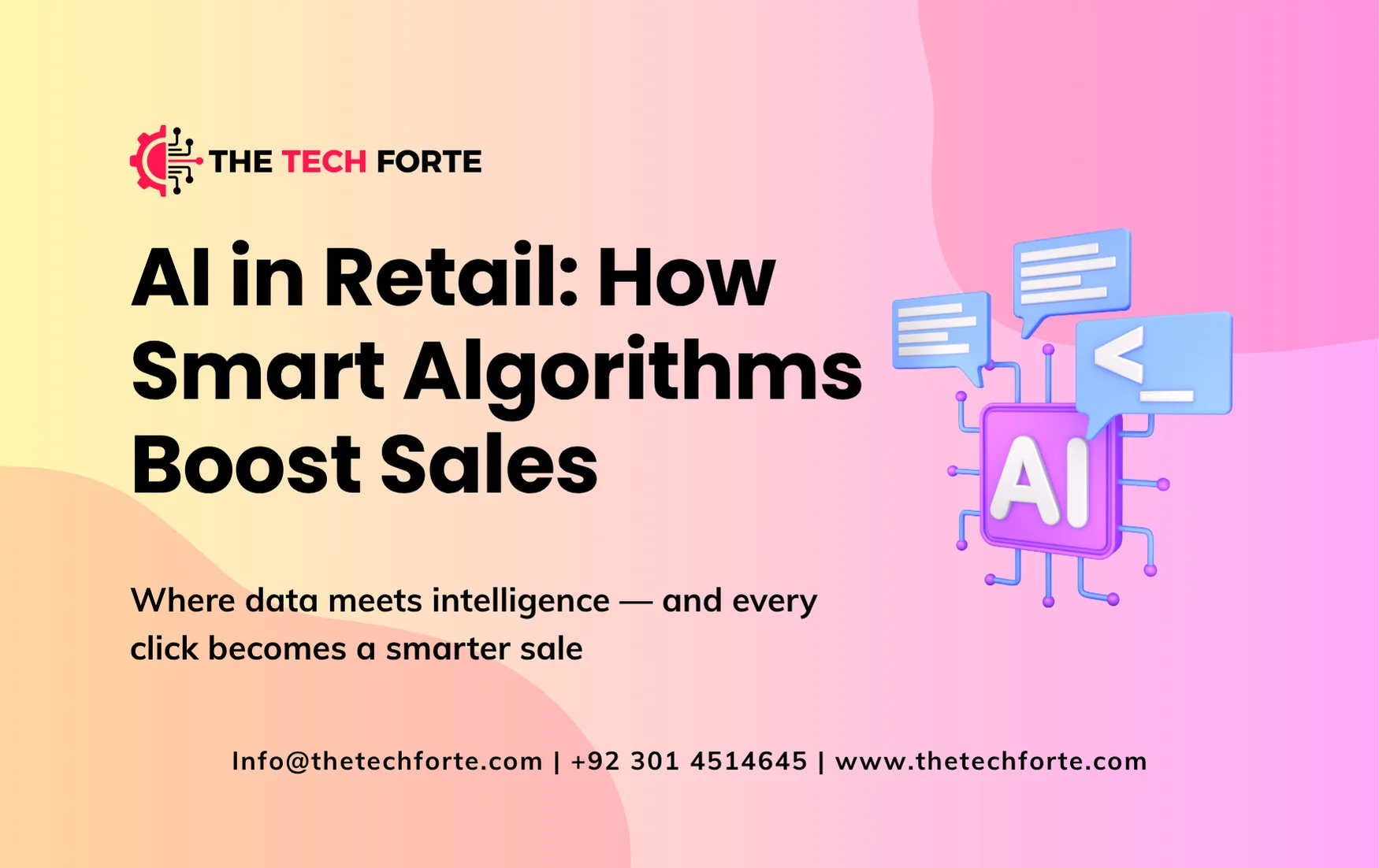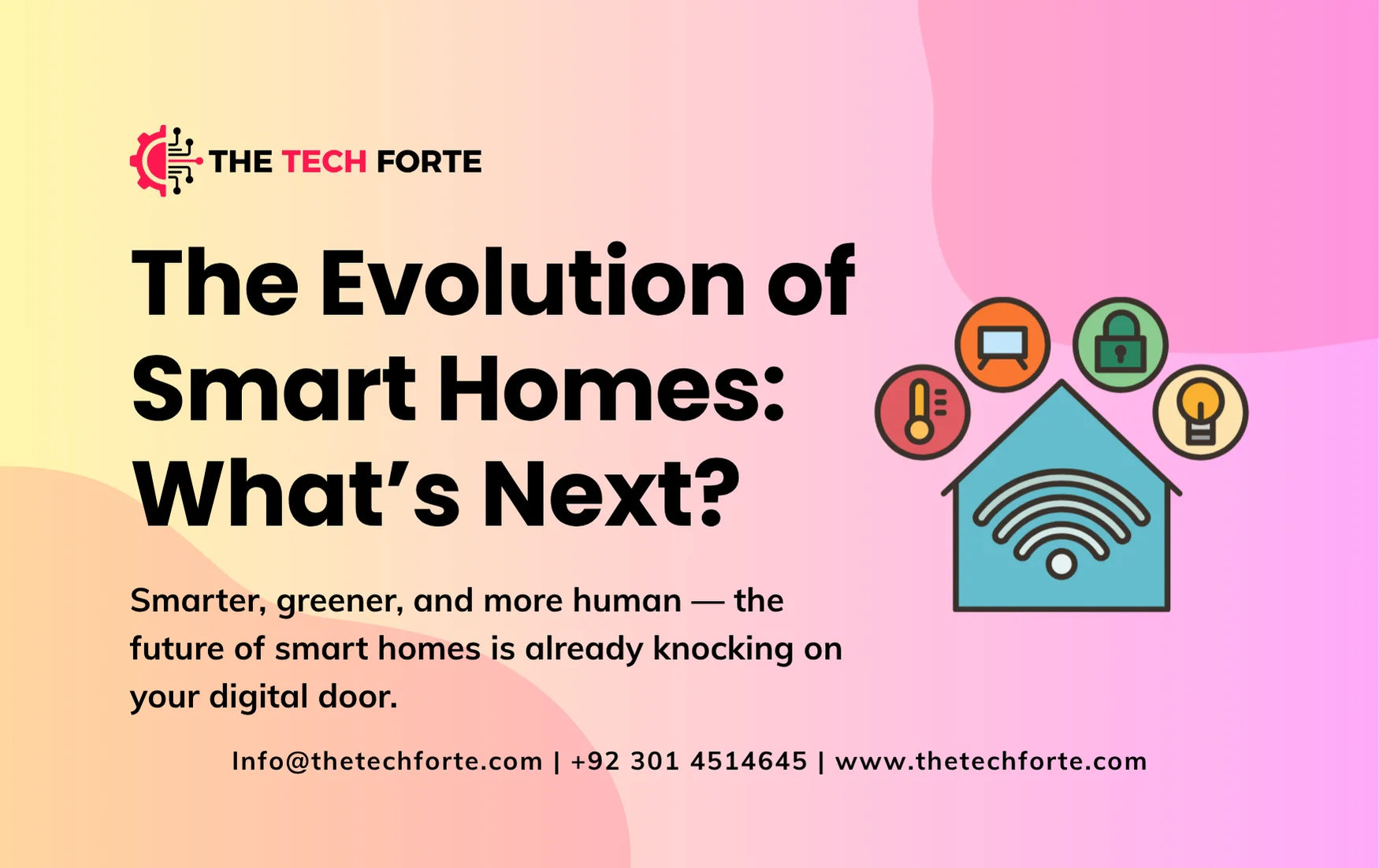
AI in Retail: How Smart Algorithms Boost Sales
The retail industry is changing faster than ever — and at the center of this transformation is AI in retail. From predicting customer preferences to automating stock management, artificial intelligence in retail is helping businesses make smarter decisions, optimize operations, and increase profitability.
Today’s AI retail solutions don’t just analyze data — they understand it. Using smart retail algorithms and machine learning in the retail industry, companies can identify buying patterns, predict future trends, and deliver highly personalized shopping experiences.
As competition intensifies and consumer behavior evolves, retailers are leveraging AI-powered retail analytics to gain a competitive edge. Whether it’s dynamic pricing, targeted marketing, or intelligent inventory systems, AI in the retail industry is redefining how modern businesses sell — and how customers shop.
What Is AI in Retail?
AI in retail refers to the use of artificial intelligence technologies — including machine learning, computer vision, predictive analytics, and natural language processing (NLP) — to optimize retail processes, enhance customer experiences, and increase sales.
These intelligent retail systems can:
- Predict which products customers are most likely to buy.
- Recommend personalized product suggestions.
- Adjust pricing dynamically.
- Automate repetitive operations.
Essentially, AI retail solutions enable businesses to make data-driven decisions, improve efficiency, and deliver the right product to the right customer — at exactly the right time.
How Smart Algorithms Are Transforming Retail
At the heart of AI in retail are smart retail algorithms — advanced data models that learn from customer behavior and business performance data.
These predictive retail algorithms process vast amounts of information from:
- Customer purchases
- Social media trends
- Website traffic
- Inventory and logistics data
The result? Retailers can anticipate demand, reduce waste, and fine-tune their operations with incredible accuracy.
For example, Amazon’s recommendation engine — a classic AI retail marketing strategy — uses smart algorithms to suggest items that customers are most likely to buy next. This single feature accounts for nearly 35% of Amazon’s total sales.
That’s the power of how AI boosts sales — through predictive accuracy, personalization, and real-time decision-making.
Understanding Smart Algorithms in Retail
A smart algorithm is an intelligent program that learns from experience and adapts to new data. In retail, this means algorithms that can predict what customers want, how much inventory to stock, and when to launch a sale.
Common types of smart retail algorithms include:
- Recommendation algorithms – Suggest relevant products to users.
- Dynamic pricing algorithms – Adjust prices in real-time based on demand.
- Smart order routing algorithms – Optimize fulfillment by selecting the best warehouse or delivery route.
- Smart search algorithms – Help customers find what they want faster using AI-powered search prediction.
- Smart triage algorithms – Prioritize customer service requests based on urgency and relevance.
These systems work in the background but have a major impact on how efficiently a retail business operates — and how satisfied customers feel after every purchase.
Personalization: AI’s Secret Weapon for Sales Growth
The key to AI retail sales growth lies in personalized shopping AI.
Through AI customer experience tools, retailers analyze each shopper’s behavior — what they view, click, and purchase — to build accurate customer profiles.
This enables AI-driven personalization, such as:
- Product recommendations based on browsing history.
- Email marketing automation tailored to individual preferences.
- Predictive discounts for customers likely to abandon their cart.
For instance, Sephora’s AI chatbot uses conversational AI in retail to provide customized beauty advice and product suggestions, mimicking the role of an in-store consultant.
This level of personalization strengthens customer loyalty and improves conversion rates — proving how AI helps retailers increase sales through smarter engagement.
AI-Powered Pricing Optimization
Retail success depends heavily on pricing — and AI-driven pricing optimization is revolutionizing how companies manage it.
By monitoring competitor pricing, demand patterns, and real-time market data, AI retail analytics tools recommend the most effective price point for each product.
This dynamic pricing strategy ensures:
- Maximized profit margins during high-demand periods.
- Discount automation during clearance or low-demand phases.
- Personalized pricing for loyalty members or returning customers.
Platforms like Walmart and Target use AI retail solutions to automatically adjust prices multiple times per day — ensuring they remain competitive while maintaining profitability.
Predicting Customer Behavior with AI
A major advantage of machine learning in the retail industry is its ability to predict what customers will do next.
Using customer behavior prediction AI, businesses can forecast:
- Which products will trend in the coming months?
- When customers are likely to repurchase.
- What items tend to be bought together?
This insight allows brands to plan marketing campaigns, promotions, and inventory accordingly.
Nike, for example, uses AI-powered predictive retail algorithms to forecast sneaker demand by analyzing social media activity and sales history — ensuring they produce the right styles in the right quantities.
Retail Automation Tools and Intelligent Store Management
Automation is another area where AI in retail stores is thriving.
Retail automation tools powered by AI help with:
- Automated checkout (as seen in Amazon Go stores).
- Smart inventory tracking via computer vision.
- Warehouse robotics for efficient packaging and delivery.
- AI-powered logistics optimization for faster deliveries.
These intelligent retail systems minimize human error, reduce costs, and improve supply chain efficiency — allowing staff to focus on customer engagement rather than repetitive tasks.
AI Retail Marketing Strategies
Marketing in the AI era has become hyper-targeted and data-driven.
AI retail marketing strategies include:
- Analyzing customer intent through social listening.
- Using AI to create dynamic ad campaigns.
- Automating content creation and email marketing.
- Measuring campaign ROI with AI-powered retail analytics.
For example, Coca-Cola uses AI retail solutions to analyze customer emotions in ads, helping tailor marketing messages that resonate better with audiences.
This data-backed approach ensures that every campaign is optimized for maximum engagement and conversion — turning marketing into a precise science.
Conversational AI in Retail
Conversational AI in retail refers to chatbots, virtual assistants, and voice commerce tools that interact with customers naturally.
These AI systems use natural language processing to assist shoppers with:
- Product recommendations.
- Order tracking.
- Customer support.
- Personalized promotions.
Brands like H&M, Domino’s, and Lowe’s have implemented conversational AI assistants to guide customers through online and in-store shopping experiences.
In 2025 and beyond, Generative AI in retail is expected to make these assistants even more intelligent — capable of understanding context, tone, and preferences for a truly human-like interaction.
Data Analytics and Decision-Making with AI
Data is the backbone of every successful retail operation — and data analytics in retail, powered by AI, transforms raw information into actionable insights.
Retailers can use AI dashboards to:
- Track sales performance.
- Identify underperforming products.
- Optimize marketing spend.
- Predict future demand with precision.
With Gen AI use cases in the retail industry, managers can now simulate different scenarios — such as price changes or seasonal trends — to make data-driven decisions faster and more accurately than ever.
Future of AI in Retail: What’s Next?
The future of AI in retail is set to be more immersive, adaptive, and personalized than ever.
Emerging trends include:
- AI in retail banking to streamline consumer financing.
- Generative AI in retail design, creating unique product visuals or marketing campaigns.
- Smart order routing algorithms to optimize global e-commerce logistics.
- AI-powered sustainability analytics to reduce waste and carbon emissions.
By 2025, AI won’t just support retail operations — it will define them. Retailers that embrace AI innovation now will lead the next generation of smart retail ecosystems.
FAQs – AI in Retail Explained
AI helps retailers increase sales by analyzing customer data, predicting buying behavior, personalizing recommendations, and automating pricing and marketing strategies.
Examples include Amazon’s recommendation engine, Walmart’s AI pricing system, and Sephora’s AI chatbot for beauty advice.
Some popular tools are Salesforce Einstein, Google Cloud Retail AI, and Microsoft Azure AI for data analytics and customer behavior prediction.
Smart algorithms track individual browsing and purchase history to recommend relevant products, apply targeted discounts, and personalize content.
The future will see more use of generative AI, advanced conversational tools, predictive modeling, and fully automated stores that redefine customer convenience.
Conclusion: The Smart Future of Retail
As technology advances, AI in retail continues to reshape the shopping experience — blending human creativity with machine intelligence.
From predictive analytics to personalized shopping AI, the entire retail ecosystem is becoming smarter, faster, and more customer-focused. Retailers that invest in artificial intelligence in retail today are not just optimizing sales — they’re building the blueprint for the future of commerce.
The message is clear: in the new era of smart retail algorithms, success belongs to those who let AI lead the way.






